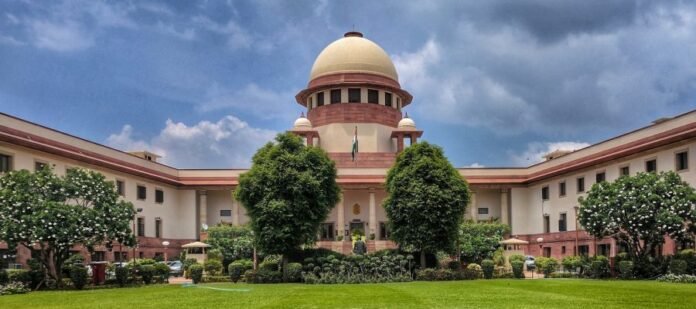Supreme Court clarifies S.132 BSA protects advocates from pressure by investigating agencies to reveal client communications.
Protecting Legal Privilege: Supreme Court Reinforces Advocates’ Rights
In a landmark observation strengthening the independence of the legal profession, the Supreme Court of India on Friday underscored that Sections 132 to 134 of the Bharatiya Sakshya Adhiniyam (BSA) are designed to protect advocates from coercion or bullying by investigating agencies seeking disclosure of privileged communications with their clients.
A Bench led by Chief Justice of India (CJI) B.R. Gavai, along with Justices K. Vinod Chandran and N.V. Anjaria, pronounced the decision in a suo motu case taken up to examine the increasing trend of investigating authorities summoning defence counsel representing accused persons for questioning.
The Court’s Observation
The apex court noted that legal privilege forms the bedrock of the attorney-client relationship and is central to ensuring the right to fair trial and effective legal representation. Citing Section 132 of the BSA, which mirrors the protection under Section 126 of the repealed Indian Evidence Act, the Bench held that the legislative intent was to ensure advocates can discharge their professional duties without fear of reprisal or intimidation.
“The legislature, by incorporating Sections 132 to 134 in the Bharatiya Sakshya Adhiniyam, has intended to secure advocates from arbitrary summons or harassment,” the Bench observed, adding that such privilege “cannot be diluted or overridden by investigative convenience.”
The Court issued directions to all investigating agencies, including state police and central enforcement bodies, to refrain from summoning practising advocates in relation to information obtained during the course of professional representation, unless a clear and exceptional necessity is demonstrated.
Legal Reasoning and Statutory Context
Section 132 of the Bharatiya Sakshya Adhiniyam, 2023, preserves the traditional principle that no advocate shall be compelled to disclose any communication made by a client in the course of professional employment, except in cases involving furtherance of an illegal act.
Legal experts note that this interpretation strengthens the continuity between the BSA and the earlier Evidence Act while reinforcing the constitutional guarantees under Articles 20(3) and 21—protecting against self-incrimination and ensuring procedural fairness.
By extending its observation to Sections 133 and 134, which deal with the liability of witnesses and compulsion of evidence, the Court underscored a holistic approach to preserving confidentiality within the justice system.
Implications for Investigating Practices
The Supreme Court’s pronouncement is expected to have a far-reaching impact on investigative processes. It reiterates that the power to summon under procedural laws must not be exercised mechanically or punitively, especially when directed at professionals performing a constitutionally protected function.
According to a senior advocate from the Supreme Court Bar, this judgment provides “a much-needed corrective to the creeping intrusion of investigative agencies into the sanctity of the defence bar.” The advocate further noted that unwarranted summons had become a method of indirect pressure on accused persons and their counsel — a practice now explicitly discouraged by the apex court.
Another constitutional law scholar paraphrased the ruling as a restoration of balance between “the legitimate demands of investigation and the inviolable rights of legal representation.”
Reinforcing Judicial Oversight and Ethical Standards
The Bench directed that any summons or notice to an advocate must be approved at the highest supervisory level within the agency and must record specific reasons. This measure, the Court reasoned, would deter arbitrary actions and uphold ethical boundaries consistent with the Bar Council of India’s Rules of Professional Conduct.
The judgment also underscores that confidentiality is not a privilege of the lawyer but a right of the client, reflecting a democratic safeguard rather than a professional convenience.
A Step Toward Restoring Trust in the Legal Process
Observers believe the decision may serve as a precedent for reinforcing independence of the bar and limiting overreach by enforcement authorities. By affirming the sanctity of legal privilege, the Court has reaffirmed that justice cannot flourish in an environment of fear or coercion.
The ruling aligns with the global standards of attorney-client privilege recognised in common law jurisdictions, which consider it a cornerstone of rule of law.
For more updates on judicial developments and analyses of landmark rulings, visit The Legal Observer. You can also explore expert commentary and video discussions on The Legal Observer YouTube Channel.




